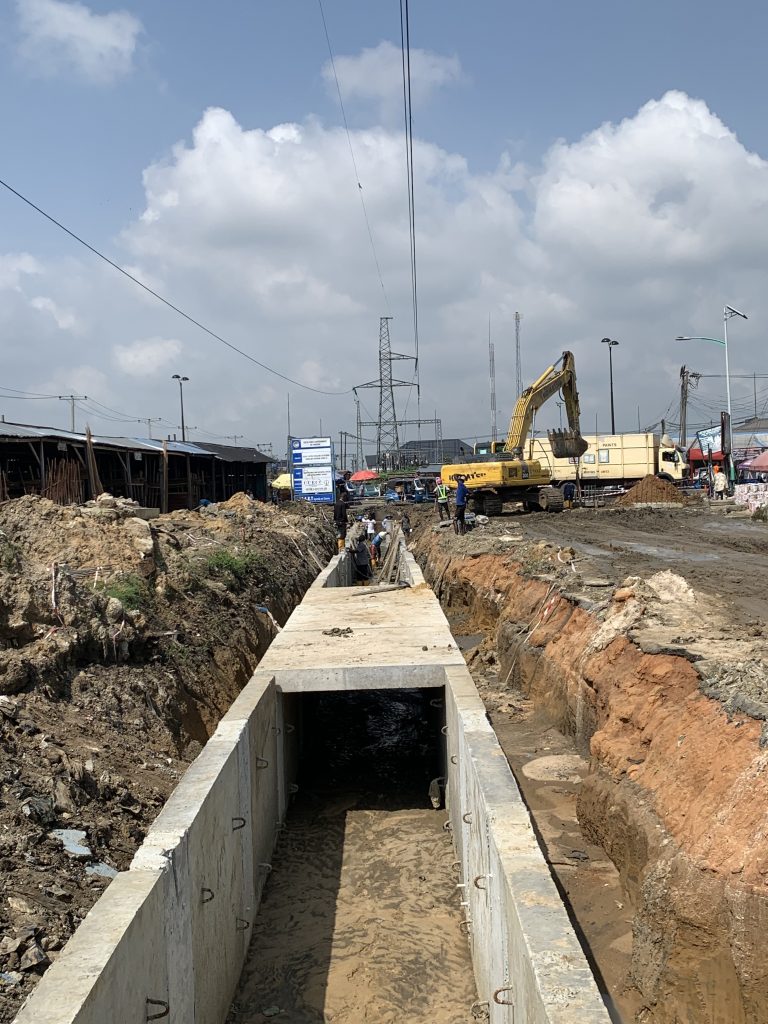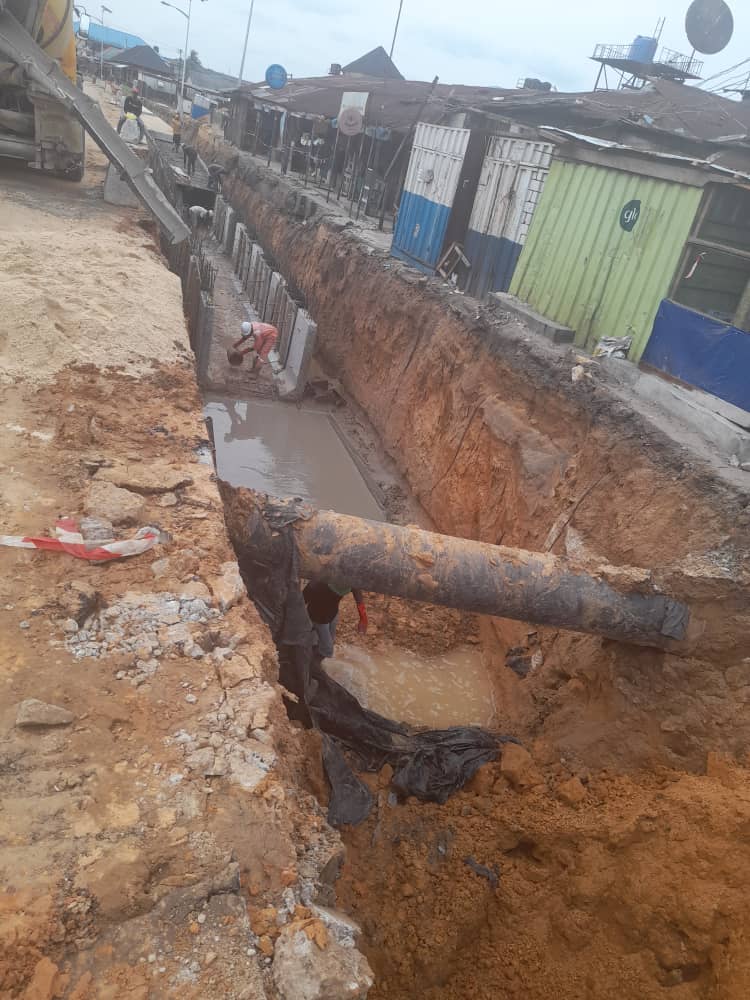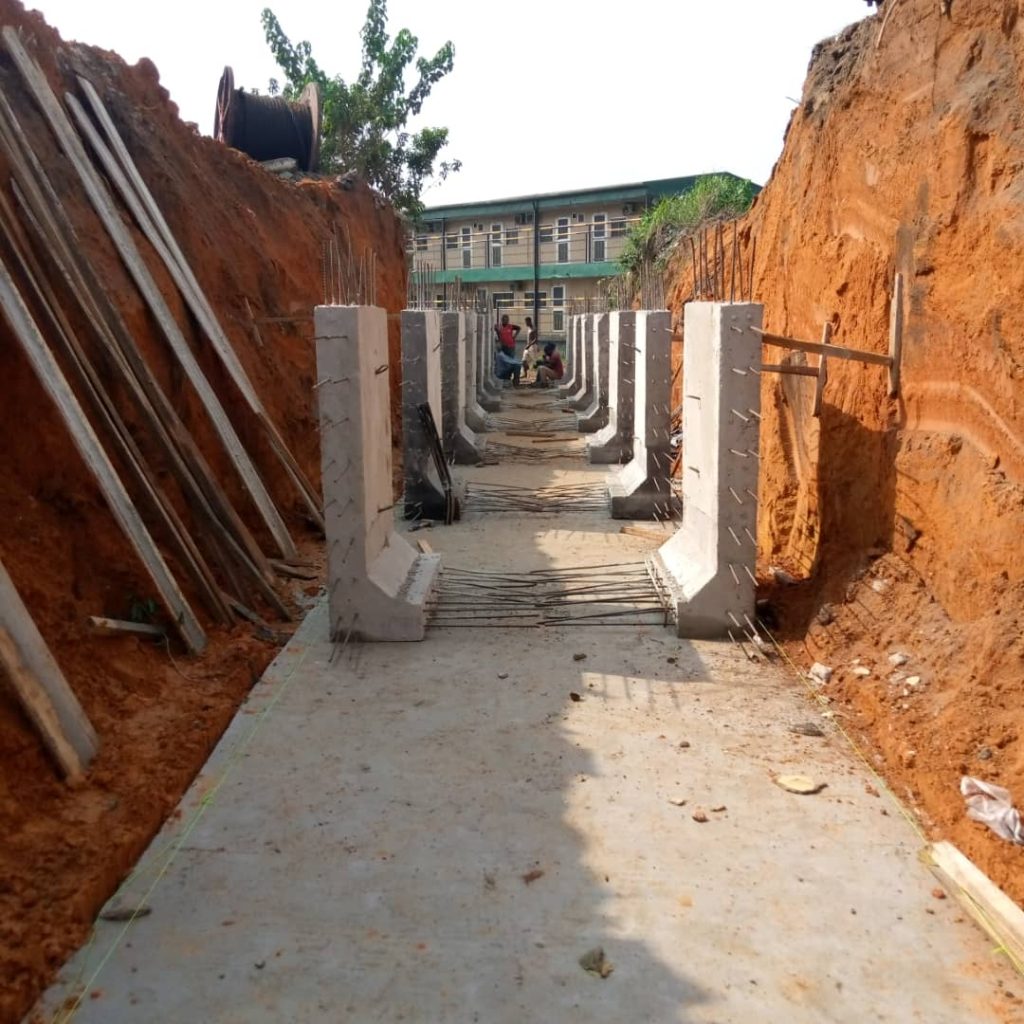
Ensuring Stormwater Drainage System Efficiency: Quality Control Measures in Nigerian Construction Projects by John Cee Onwualu (FNSE, FNICE, FNIWE, P.E., R.ENG, MASCE)
Ensuring Stormwater Drainage System Efficiency: Quality Control Measures in Nigerian Construction Projects
In Nigeria, the increasing frequency of flooding and urban waterlogging underscores the critical need for effective stormwater drainage systems. These systems are essential for managing rainwater runoff, protecting infrastructure, and safeguarding public health.
This article delves into the importance of quality control (QC) measures in the construction of stormwater drainage systems, providing a foundational understanding of how these measures can enhance efficiency and performance.
The Importance of Efficient Stormwater Drainage Systems

Flood Prevention and Infrastructure Protection
Nigeria faces significant challenges related to stormwater management, particularly in urban areas where rapid population growth and inadequate infrastructure exacerbate flooding risks.
Efficient stormwater drainage systems play a vital role in mitigating these risks by channeling excess rainwater away from populated areas, thereby preventing property damage and loss of life.
Poorly designed or maintained drainage systems can lead to severe flooding, which disrupts transportation networks, damages buildings, and increases the economic burden on communities[1][2].
Moreover, effective drainage systems contribute to the overall sustainability of urban environments. They help maintain groundwater levels, reduce soil erosion, and minimize the pollution of water bodies by controlling runoff. This is particularly crucial in Nigeria, where water quality issues are prevalent due to inadequate waste management practices[2][3].
Quality Control Measures in Stormwater Drainage Construction

Understanding Quality Control
Quality control refers to the systematic processes implemented to ensure that construction projects meet specified standards and regulations. In the context of stormwater drainage systems, QC measures are essential for ensuring that these infrastructures can handle expected rainfall volumes and operate efficiently over their lifespan.
Initial Steps in Implementing Quality Control
1. Design Standards Compliance:
The first step involves adhering to established design standards and guidelines specific to stormwater drainage. This includes using appropriate materials, calculating drainage capacity based on local rainfall data, and ensuring that designs account for potential future climate changes[3][4].
2. Material Quality Assurance:
Selecting high-quality materials is crucial for the longevity and effectiveness of drainage systems. Regular testing of materials such as concrete, pipes, and filters should be conducted to ensure they meet engineering specifications[1][5].
3. Construction Monitoring:
Continuous monitoring during the construction phase is necessary to ensure compliance with design specifications. This includes regular inspections and tests at various stages of construction to identify any deviations from planned designs early on[6].
4. Post-Construction Evaluation:
After installation, conducting thorough evaluations of the drainage system is vital. This includes assessing flow rates, checking for blockages or leaks, and ensuring that all components function as intended under various weather conditions[7][8].
5. Maintenance Planning:
Establishing a maintenance schedule is essential for sustaining the efficiency of stormwater drainage systems. Regular cleaning, inspections, and repairs should be planned to prevent clogs caused by debris or sediment accumulation[1][2].

Conclusion
In conclusion, ensuring the efficiency of stormwater drainage systems in Nigeria through robust quality control measures is not just a matter of regulatory compliance but a necessity for public safety and environmental sustainability.
As urban areas continue to grow and face increasing rainfall intensity due to climate change, investing in quality control during construction projects will be paramount in building resilient infrastructure capable of protecting communities from flooding and other related challenges.
By prioritizing quality control in stormwater management practices, Nigeria can enhance its civil engineering efforts and improve overall urban resilience against climate impacts.
References
[1] https://isdsnet.com/ijds-v2n2-54.pdf
[2] https://neptjournal.com/upload-images/(5)D_1538.pdf
[3] https://www.ajol.info/index.php/njt/article/view/122297
[4] https://www.ej-eng.org/index.php/ejeng/article/view/2728
[5] https://www.fao.org/faolex/results/details/en/c/LEX-FAOC145947/
[6] https://www.sciencedirect.com/science/article/pii/S2666016424001609
[7] https://www.americanjournal.org/index.php/ajtas/article/download/12/9/9
[8] https://www.researchgate.net/publication/345786150_Effective_Management_of_Storm_water_in_Ibeju-Lekki_Local_Government_Area_of_Lagos_State_Nigeria
Pingback:Preventing Stormwater Pollution: Implementing Effective QC for Drainage Systems in Nigeria By John Cee Onwualu (FNSE, FNICE, FNIWE, P.E., R.ENG, MASCE) – Jefcon & Associates Ltd